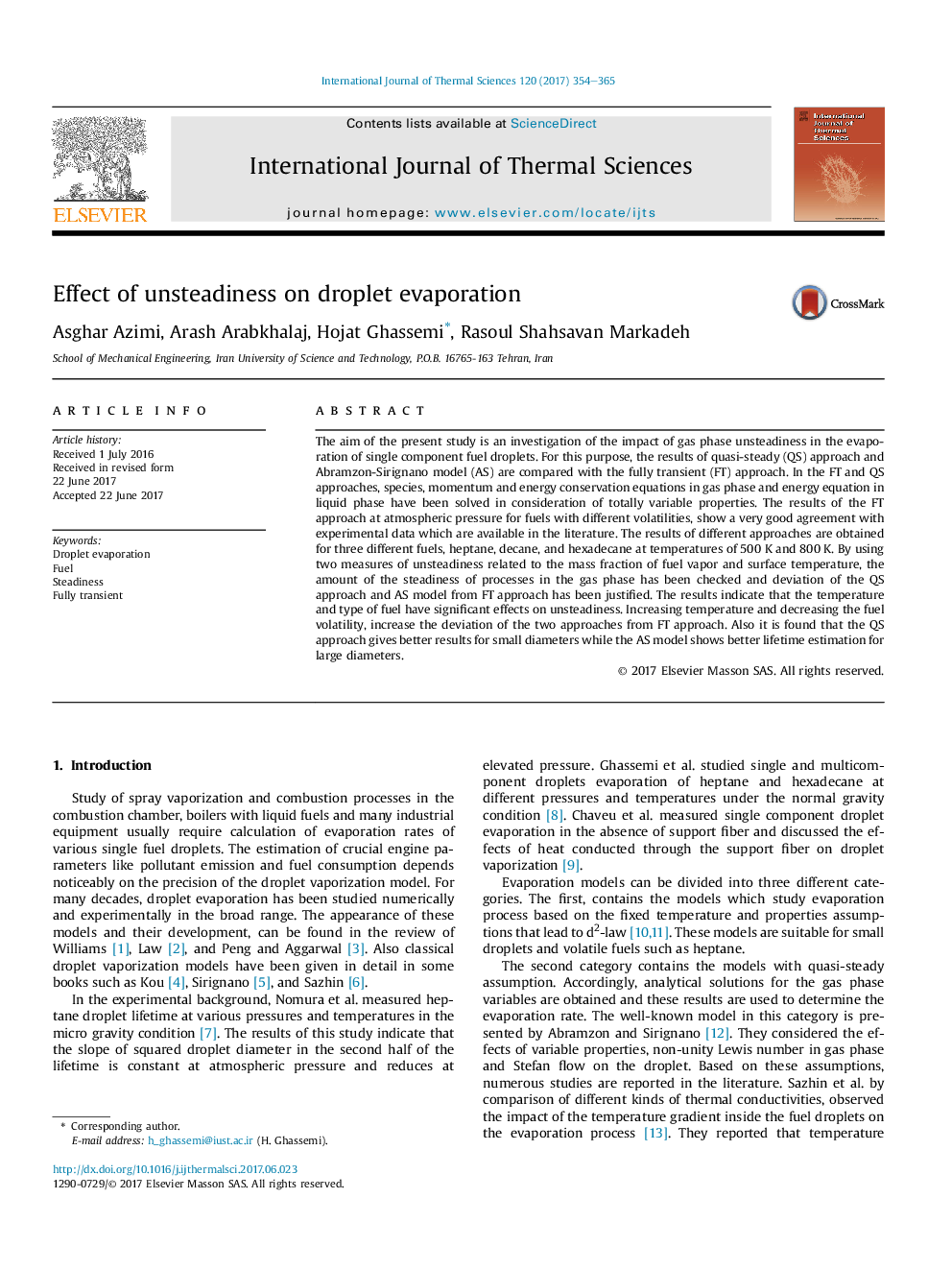| Article ID | Journal | Published Year | Pages | File Type |
|---|---|---|---|---|
| 4995243 | International Journal of Thermal Sciences | 2017 | 12 Pages |
Abstract
The aim of the present study is an investigation of the impact of gas phase unsteadiness in the evaporation of single component fuel droplets. For this purpose, the results of quasi-steady (QS) approach and Abramzon-Sirignano model (AS) are compared with the fully transient (FT) approach. In the FT and QS approaches, species, momentum and energy conservation equations in gas phase and energy equation in liquid phase have been solved in consideration of totally variable properties. The results of the FT approach at atmospheric pressure for fuels with different volatilities, show a very good agreement with experimental data which are available in the literature. The results of different approaches are obtained for three different fuels, heptane, decane, and hexadecane at temperatures of 500Â K and 800Â K. By using two measures of unsteadiness related to the mass fraction of fuel vapor and surface temperature, the amount of the steadiness of processes in the gas phase has been checked and deviation of the QS approach and AS model from FT approach has been justified. The results indicate that the temperature and type of fuel have significant effects on unsteadiness. Increasing temperature and decreasing the fuel volatility, increase the deviation of the two approaches from FT approach. Also it is found that the QS approach gives better results for small diameters while the AS model shows better lifetime estimation for large diameters.
Keywords
Related Topics
Physical Sciences and Engineering
Chemical Engineering
Fluid Flow and Transfer Processes
Authors
Asghar Azimi, Arash Arabkhalaj, Hojat Ghassemi, Rasoul Shahsavan Markadeh,
